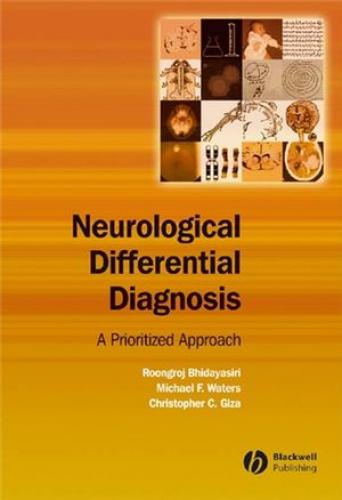Neurological Differential Diagnosis

Ilość ilustracji: 80
Oprawa miękka
This is a "pearl" of a book for any clinician who is asked to assess patients with symptoms or signs suggestive of a neurological disorder, including neurologists, internists, geriatricians, neurosurgeons, psychiatrists, general practitioners, trainees, and students. Neurological Differential Diagnosis will enlighten clinicians on the most likely and important differential diagnoses to consider and exclude, and guide appropriate and cost-effective investigations. The book has a unique format; it is the only book I know to list differential diagnoses according to what is most common in patients of the same demographic and what is potentially the most lethal and disabling. This hierarchy of differential diagnoses is clearly and consistently presented (eg, in bold and italicised text) throughout the book. Associated relevant background information for each symptom, syndrome, or disorder is well presented (in shaded boxes) with the list of differential diagnoses. Welcome chapters on paediatric neurology, neurogenetics, neuroradiology, diagnostic tests, neuroanatomy, and neuropathology are included. Although few references are given, the book seems to be valid, based on a wealth of clinical experience coupled with best evidence from the available literature. Even after practising clinical neurology for more than 20 years, I have already dipped into this book on several occasions to help me with tricky patients, and I have to remind my neurology residents and registrars, and colleagues in the accident and emergency department, to return it."
Graeme J Hankey, the Lancet Neurology Vol 4 November 2005
Neurology is primarily characterized by a variety of diseases which seem very similar and are therefore difficult to distinguish between. Skill at differential diagnosis is therefore absolutely paramount.
Neurological Differential Diagnosis is a streamlined handbook of prioritized differential diagnosis, to be used both in clinical practice and for exam review.
By presenting differential diagnosis in order of frequency and importance, this book provides a practical handbook for clinicians in training, as well as a potential resource for quick board review. Whilst the book covers the most important syndromes and disease entities, readers are referred to other texts for more exhaustive differentials. By limiting differentials in this way - to the most likely and most serious diagnoses - the reader can more easily recall relevant disease processes when faced with a particular clinical situation, whether it be a patient in the emergency room or a difficult question on the board examination.
The book specifically targets neurology residents and fellows, with overlap to neurosurgery and psychiatry. Internal medicine physicians with an interest in neurological problems and medical students looking for an edge in clinical neuroscience would also benefit from this text.
The content is primarily mid-level material, in a pedagogic format.
In order to organize the students' thought processes concise tables and line drawing templates are included. The book is organized into broad chapters by type of disorder and some overlap occurs between particular chapters.
